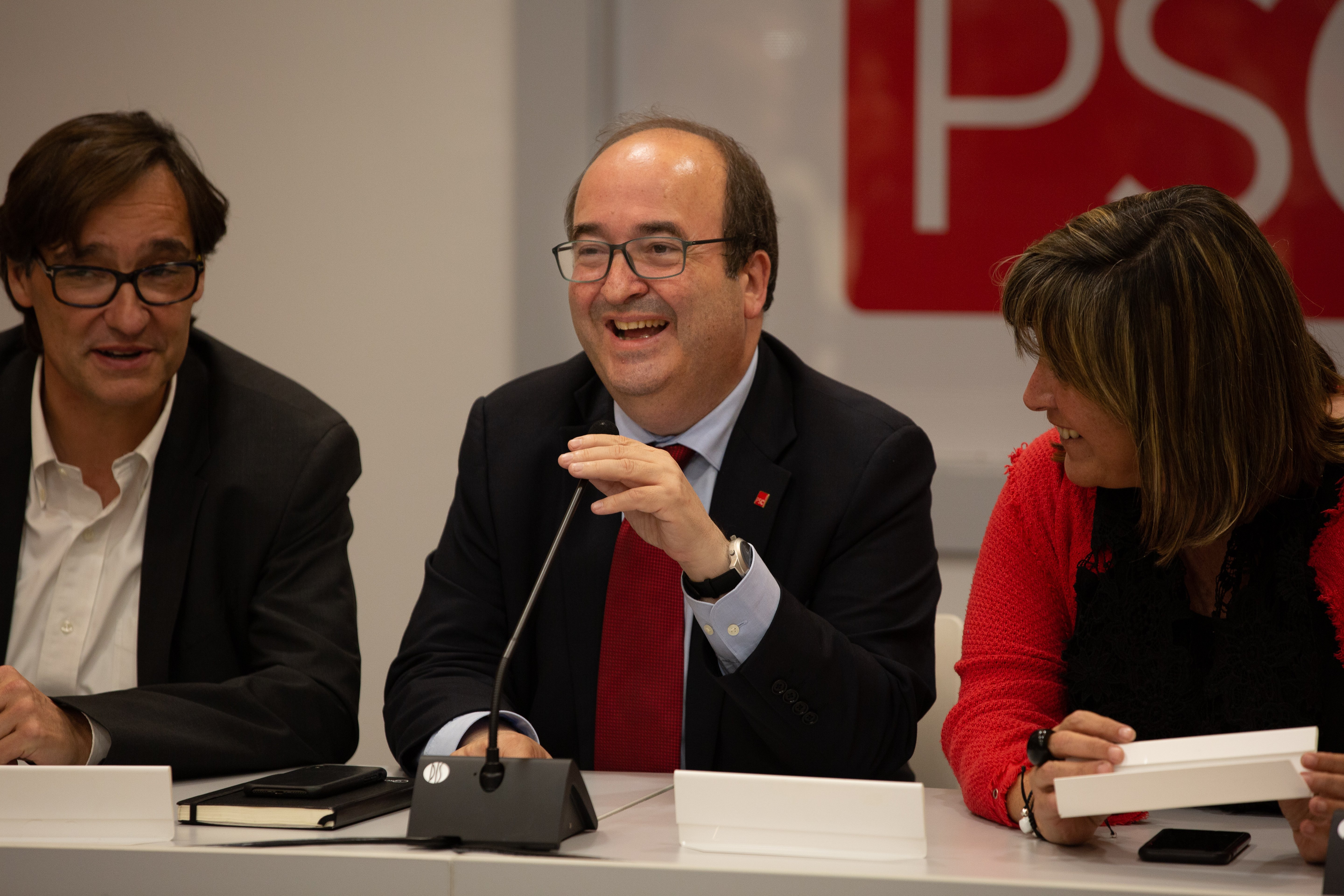PSC, the Catalan affiliate of PSOE, the party of acting Spanish prime minister Pedro Sánchez, wants to "recognise Catalonia as a nation and Spain as a plurinational state". The proposal is one of those the party wants to approve in its 14th Congress to be held from 13th to 15th December.
The new 2006 Catalan Statute of Autonomy, passed whilst PSC were in government in Barcelona, originally contained language describing Catalonia as a nation within a plurinational Spain. It was one of the most controversial parts of the statute, cut back over time and eventually declared "legally ineffective" by the Constitutional Court in Madrid. That court ruling, which annuled or defined the interpretation of large sections of the statute, was one of the moments that sparked the recent growth in support for Catalan independence.
The 36 pages of proposals, published on the party's website, outline their planned approach to issues like Catalonia's place within Spain, showing strong support for federalism, as well as questions like language policy, employment, the climate emergency and social inclusion.
"A Catalonia united in diversity and well-governed" is the document's first point. It says that Catalonia and Spain, with their "interlaced" history, are "plural and diverse, a collection of peoples with their own uniqueness with social, cultural and political links which have kept them united."
Spain, PSC says, is a modern, multilingual and multicultural country, based on equal rights and the guarantee of the right to autonomy of the peoples that make it up. They write that "recognising Catalonia as a nation and Spain as a plurinational state is our way of understanding our union and equality in diversity."
They admit that there is "an important division" in Catalonia and an "unprecedented institutional crisis", which they blame on "decades of hegemonic conservative nationalism" and a decision to "exacerbate feelings, dividing us between those they consider are and aren't Catalan".
"A permanent conflict made worse by the victimism through the distortion of the history of and situation in Catalonia," they say. They criticise "the partisan use of the institutions" and the "lack of impartiality and neutrality in the public media".
The party believes that federalism offers the solution to the political conflict in Catalonia, since it offers the possibility to "recognise, respect and integrate the various national identities which live together, without reducing the social cohesion and equality between Spaniards".
They say the approach is "the most viable politically, the most stable economically, the most just socially and the only one capable of bringing together broad social support." They say federalism is a synonym for "recognition, self-government and shared government, just and sufficient funding." They note that any solution to the crisis, however, can only be achieved "through the path of dialogue, negotiation and agreement with total respect for the law".
Other proposals
When it comes to language policy, PSC believe that, in recent decades, the peaceful coexistence "has been broken" by the "use" nationalism has made of the language question, by the independence movement and by its "partisan use [...] especially in schools".
As such, arguing there is a risk that people's mother tongues could become a factor for social division, they want to "do everything possible for an effective harmony of Catalan and Spanish, to make the confrontation between languages which is putting at risk social harmony and the common linguistic heritage vanish". They propose a multilingual model for schools.
PSC also argues for "free and responsible media" capable of regaining the "trust of the whole public". They believe that Catalan public broadcasters TV3 and Catalunya Ràdio have become, in part, "tools of agitation and propaganda at the service of a certain political idea in Catalonia". They propose the new leadership should be chosen following an international selection process.

